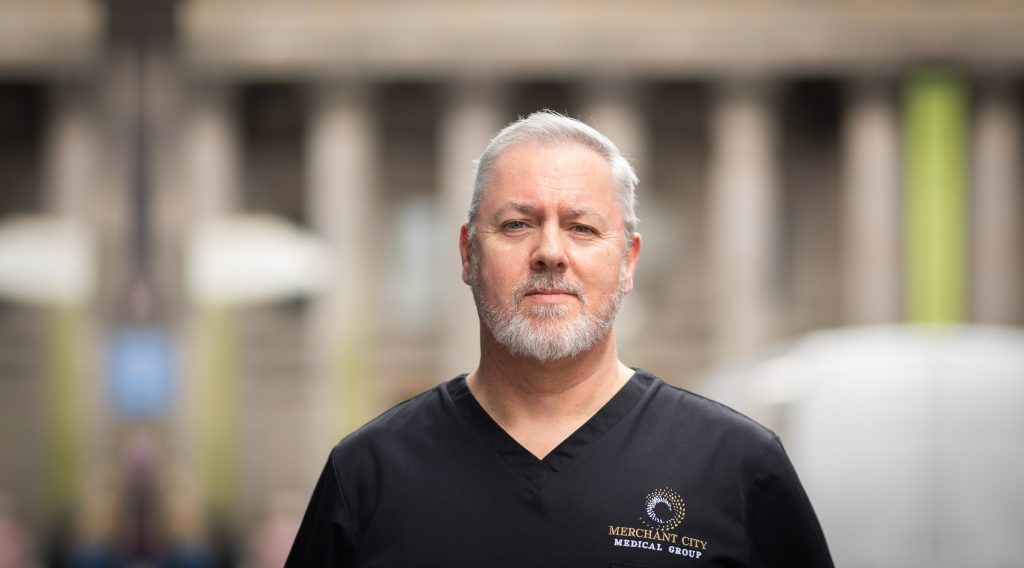
Is Every Candidate Suitable For Hair Transplant?

A hair restoration treatment, sometimes called a hair transplant, involves a surgeon taking hair follicles from one part of the body and transplanting them to another. These minimally invasive surgical procedures are performed using several techniques, the most popular being FUE and FUT.
This is an ever-evolving field of surgery. This kind of surgery, where follicles, or “donor hair,” are transplanted from the scalp’s back and/or sides to thinning areas on top, is most commonly performed for Male Pattern Hair Loss, which is inherited hair loss caused by genetics.
These places do not influence hair, so donor hair is extracted from them. DHT is the hormone the body generates that assaults sensitive hair follicles in males with a hereditary predisposition, causing them to shrink.
Why Would a Patient Fail to Be a Good Candidate for a Hair Transplant?
You must schedule a consultation with a respectable physician or surgeon before having hair transplant surgery performed. Several factors will be considered to decide if you are a good candidate for the treatment. The following are the most popular cases of why patients fail to qualify for hair transplant procedures.
A pregnant Patient
The surgeon will suggest postponing the hair transplant while the woman is pregnant because it is not a medically required surgery.
For the lady and the unborn child, it might be dangerous. There will be difficulties in the healing process as well, which could worsen the mother’s and the fetus’s health.
A Diabetic Patient
Diabetes can be divided into two categories. Because their bodies cannot produce enough insulin, people with type 1 diabetes require injections to keep their blood sugar levels stable. The inability of the body to use the insulin produced is a condition experienced by those with type 2 diabetes.
A patient with diabetes who is not responding to treatment and who is having trouble clotting blood or healing wounds cannot receive a hair transplant. On the other hand, a hair transplant is an option if the patient is stable and responding to treatment. However, as in this case as well, consultation before surgery is crucial.
HIV and Hepatitis
It is not feasible to get a hair transplant if you have hepatitis until you have recovered. There should be no pathogen in your blood.
You can never get this surgery done if you have hepatitis C.
The same applies to AIDS. The patient’s weakened immunity means that minor wounds will take a long time to heal and that they will be more susceptible to infections.
Cardiovascular Disease
Blood thinners are prescribed to patients with cardiovascular diseases. They might not be a suitable candidate for a hair transplant because of this, which makes the procedure risky and can result in significant bleeding.
They could, nevertheless, still experience it in some circumstances. Those who struggle to control their high blood pressure or who have it all the time should not use it.
Hair Loss with No Stable Pattern
This is particularly crucial for people who wish to have a hair transplant as soon as possible. If you have begun to experience hair loss due to pattern baldness in your early 20s, your pattern is not yet “set/stable.” This indicates that it is unknown which areas of the scalp the DHT hormone may impact.
The surrounding hair will most certainly eventually fall out due to hormones, even though you may initially have a little bald patch. As a result, you must wait until you have distinct areas on your scalp where DHT won’t affect the hair follicles because restoration surgery will be performed there.
Implies that if you have androgenetic alopecia as a young person, hair transplantation is not now an option for you. When you return, the dermatologist will ask about your hair loss history, including the length of time you have been losing hair, the rate at which you are losing it, and the duration of this pattern. If all goes well here, you may be an excellent candidate for hair transplant surgery.
Low Hair Density from the Chosen Donor Area
You must have a high hair density in the scalp’s donor area for a hair transplant to be successful. That is the location from where the hair will be moved to the areas that are balding. For the balding area to have a natural covering, you would require 50–80 grafts per cm2.
However, if there is insufficient hair in the donor location to accommodate it, you will have low hair density. Furthermore, the donor area, where the follicles are extracted, may result in permanent bald patches in you. For this reason, having a hair transplant requires having a healthy donor area.
Mental Illness
Hair loss can be a consequence of certain mental health disorders.
A person with trichotillomania, in addition to body dysmorphic disorder, willfully removes their hair from their scalp, eyebrows, and eyelashes for a variety of reasons, including:
- Obsessive-compulsive disorder
- Anxiety
- Stress
- Boredom
The individual needs assistance for the therapy of these psychological issues initially if this is the cause of their hair loss and baldness. This ensures their routines won’t interfere with the newly implanted hair grafts. Androgenetic alopecia may coexist in an individual with several diseases.
Patients should first receive treatment for these psychological issues in order to guarantee a successful surgery. If a hair transplant is a good option for you, your surgeon will screen you for it.
Unhealthy Scalp
For patients to undergo hair transplant surgery, their scalps must be healthy. Androgenetic alopecia is a common condition in individuals with chronic diseases. Before having the procedure, they would need to wait for the current flare-up to fall into remission.
If you suffer from eczema, lupus, or psoriasis, this could be the situation. Treatment for pattern baldness patients with alopecia areata must wait for the problem to clear up.
In the event that you suffer from cicatricial alopecia or scalp scarring, you are probably not a good candidate for hair transplant surgery. However, in certain instances, hair transplantation on burned skin is feasible.
Patients with Unrealistic Expectations
It’s important that you go into your hair transplant operation with reasonable expectations.
Patients must be ready for the outcome since there are situations when having great hair density is just not achievable. It is unreasonable to presume that you would experience the same before and after outcomes as other patients. This is because you have a distinct hair kind, quality, and anatomy.
You can’t expect complete coverage where the scalp won’t show through if your donor area is weak. If you have unrealistic expectations for the procedure, you are not a candidate for a hair transplant.
Furthermore, there’s a good chance you’ll have a lot of difficulties both during and after the procedure if you smoke or consume alcohol before and after (not in accordance with the clinic’s directions). That will also impact the outcome. As a result, you should have reasonable expectations about what a hair transplant can do if you’re unwilling to make lifestyle adjustments.
Conclusion
Regretfully, you are not eligible for a hair transplant in the above situations. Alternatively, you can wear hair systems like wigs, hairpieces, extensions, etc., or you can consider a procedure like scalp micropigmentation.
The majority of individuals who seek hair transplantation are good candidates.
That is why at Merchant City Medical Group, we have experienced surgeons who perform top-notch hair transplant surgeries at a very affordable cost. Numerous men and women have already benefited from our most cutting-edge operations and state-of-the-art equipment at our top-ranked clinics in the UK, which provide both surgical and non-surgical cosmetic procedures.
We are aware that our patients should live lifetimes of not just feeling fantastic but also looking amazing.
Book a free consultation or contact us today to start your road to a better, more confident version of yourself.

